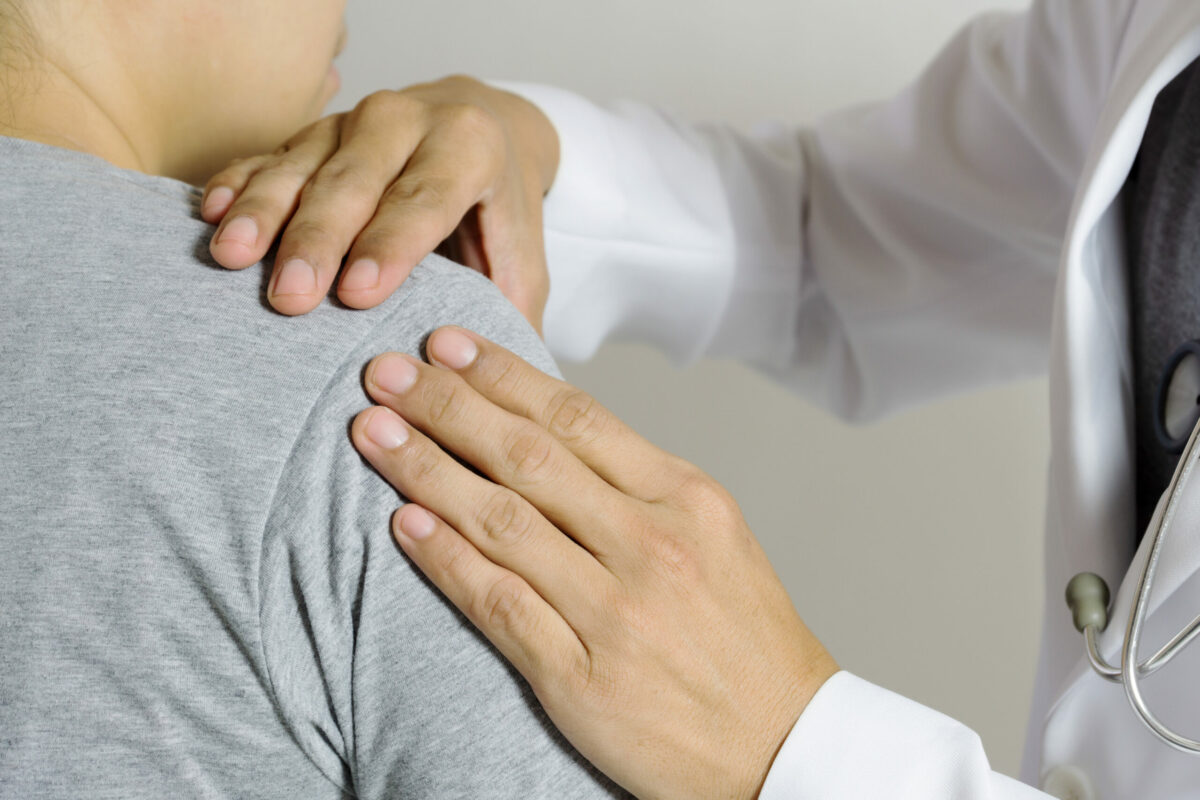
Slips and falls are common causes of injury. In fact, slips and falls are estimated to be the leading cause of emergency room visits in the U.S. and the reason for more than 8 million hospital emergency room visits each year.
Though many different injuries can occur, a large number of people experience shoulder injuries from falling. Generally, the first move a person makes when falling is to break the fall by outstretching their arms forward. When we do that, the shoulder takes most of the hit when we land.
Also, the anatomy of the shoulder makes it more susceptible to injury. Three bones make up the shoulder: the humerus (arm bone), clavicle (collar bone), and scapula (shoulder blade). Together, when properly connected by soft tissue, ligaments, and tendons, they form the joints that allow for a wide range of motion. Since these joints are the most mobile joints in the body, they are more susceptible to injury, especially after a fall.
Common Situations Where Falls Occur
While the Centers for Disease Control (CDC) reports that emergency room fall-related visits increase with a patient’s age, slips and falls are common among people of all ages, genders, and fitness levels. Here are some of the causes of slips and falls:
- Practicing/competing in athletics
- Performing housework on a ladder
- Slipping on a wet floor/surface
- Climbing on a roof
- Ice, snow, and rain
- Loose mats and rugs
- Workplace hazards
Common Shoulder Injuries From a Fall
While the complexity of the shoulder can put you at risk for multiple types of injuries, here are some of the more common shoulder injuries resulting from a fall that we have treated:

Rotator Cuff Tear: A rotator cuff is a group of muscles and tendons that help keep the upper arm bone stabilized in the shoulder socket. As you attempt to break your fall, the impact on these soft tissues can easily cause the muscles and tendons to partially or fully tear. If you have significant shoulder pain and have difficulty lifting your arm over your head, you may be experiencing a rotator cuff tear.
Dislocated Shoulder: A forceful impact to an outstretched arm as you attempt to break your fall can cause this joint to dislocate. The upper arm bone can pop out of the cup-shaped socket that makes up part of your shoulder blade. Shoulder dislocations can be painful, and you may have difficulty moving the arm at all as it hangs down near your side. Aside from the acute pain, you may have swelling and bruising in the area.
Clavicle Fracture: Also known as a broken collarbone, this fracture is another common shoulder injury from falling. When you fall directly on your shoulder or onto your outstretched hand, the excess pressure on the bone can overstress it and cause a fracture. These fractures are typically painful and may make it difficult for you to bend your arm.
Shoulder Separation: This injury actually involves the AC joint, which is where the collarbone (clavicle) meets the highest point of the shoulder blade. Because of its location on the top of the shoulder, it’s frequently landed on when someone falls. When the ligaments that hold the joint in place are damaged or torn, the collarbone and shoulder blade become separated. The shoulder blade moves downward from the weight of the arm, creating a bump or bulge above the shoulder.
Proximal Humerus Fractures: The humerus — also known as the upper arm bone — is a long bone that runs from the shoulder and shoulder blade to the elbow. A proximal humerus fracture usually occurs close to the shoulder joint and is often caused by a fall with an outstretched hand, a car crash, or some other type of accident. Common symptoms of this fracture include pain, swelling and bruising, inability to move the shoulder, shoulder deformity, and loss of normal use of the arm if the nerve is damaged.
Signs You Should See a Doctor About Your Shoulder Injury From Falling
As stated, there are many shoulder injuries you can sustain from a fall. If you are experiencing pain in your shoulder from falling, it is important to see a doctor as soon as possible. The earlier you get treatment, the more positive the treatment outcome can be. You should see a doctor after a fall if you experience any of the following events:
- You hear a popping sound in your shoulder
- Your shoulder becomes weak and unstable
- Your shoulder pain becomes intense or lasts for a long time
- You can’t move your shoulder in the way that you usually did
- You experience swelling or bruising in your shoulder
At EmergeOrtho—Blue Ridge Region, our board-certified shoulder specialists have extensive training in diagnosing and treating injuries you have sustained as a result of a fall or any injuries and conditions related to your shoulders. In case of an emergency, visit our urgent care centers or schedule your appointment.







